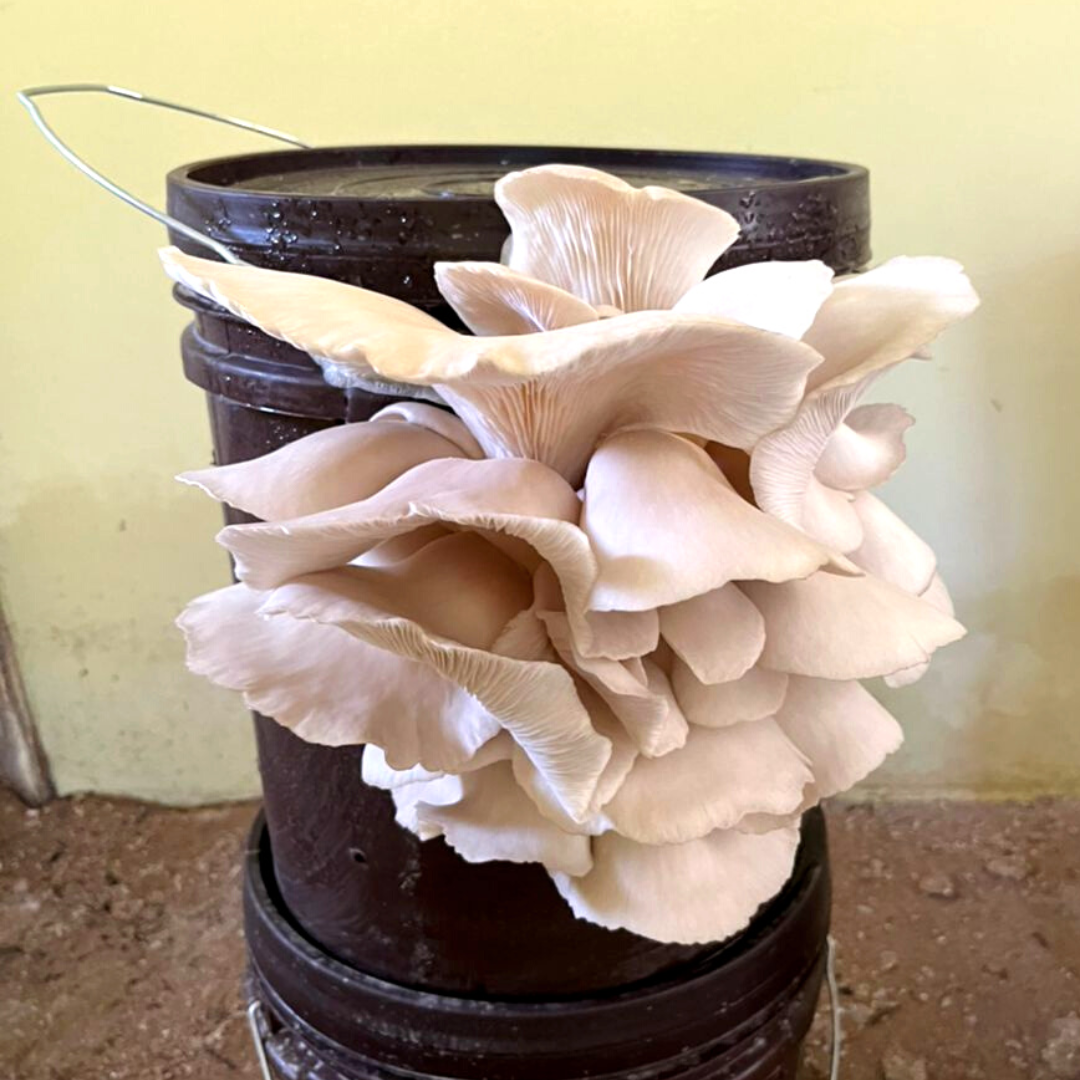Mushroom Farming
Reducing poverty, increasing wellbeing, and combatting climate change.
Activities and goals:
Provide training on both the agricultural and business aspects of mushroom farming with priority given to women and people with disabilities. Introduce the nutritional benefits to the local community as well as provide a quality agricultural product ready for international export.
Combat nutritional deficiencies in the local community by introducing a new and beneficial crop. Provide sustainable business opportunities within the local community and achieve a higher degree of self-funding. Set-up of collaborative farms to meet local demand, and to provide a local income stream.
Mushrooms are grown in buckets and indoors, and hence easier allow women and people living with disabilities to become equal participants in their family’s and community’s economic life. Through careful selection of species and growing conditions, mushrooms can be grown year-round regardless of changes in rain patterns.
After the initial central set-up and establishment of the first round of collaborative farms, the project is financially sustainable with income generated from the export of central production as well as surplus production from the collaborative farms.
The Problems it solves:
Gender inequality is prevalent in Tanzania and starts for girls already at a very young age when they are deprived of the chance of an education in favour of their brothers. Without a good education, many girls and young women will remain both financially and emotionally dependent on their parents, partners, or husbands.
People with disabilities bear the double burden of poverty and exclusion due to financial, social, and environmental barriers coupled with the high degree of stigma experienced by people living with disabilities across Tanzania.
38% of children in rural Tanzania are experiencing stunted growth due to lack of nutritional food.
The adverse impacts of climate change include both reduced crop yield due to drought and floods as well as reduced water availability.
Women are often unaware of their rights to access, own, use, and transfer land. Hence women focus less on agricultural activities as without a certificate of ownership land can easily be claimed by male relatives or neighbours.
project activity:
Mushroom farming
Duration:
1 year, then financially sustainable
Sector:
Entrepreneurship for vulnerable groups
Investment:
From USD $50,000 to $150,000
Target group:
Women and People with Disabilities
Beneficiaries:
Directly: 200 people trained per year
Indirectly: 35,000 residents
We can implement this project, on your behalf, anywhere in Tanzania.
Please contact us to discuss your unique situation.
We will customise impact and financial commitment to your specific needs.

